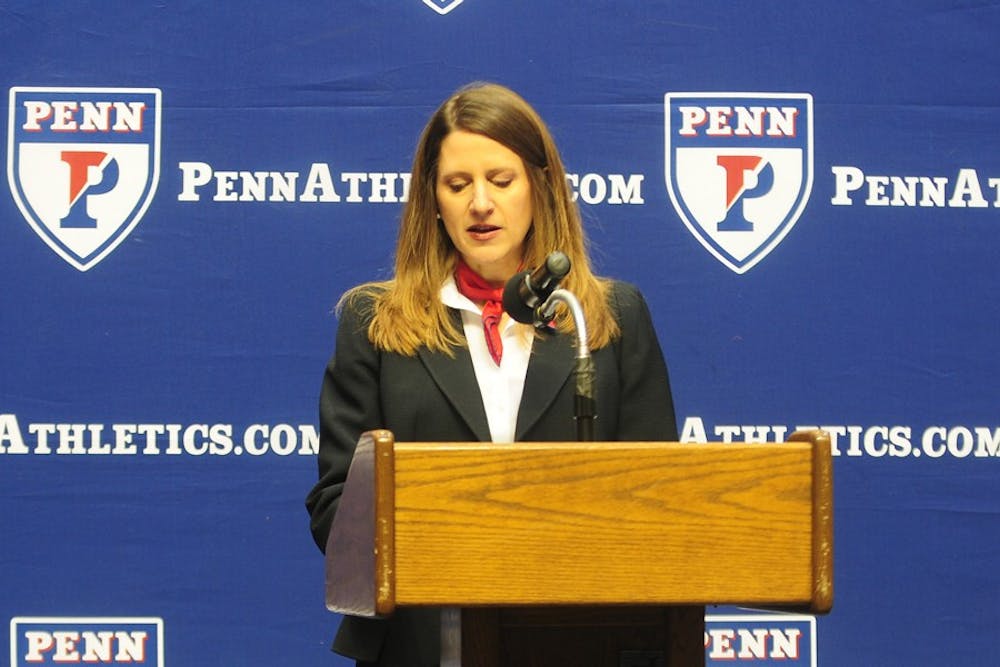Penn Athletics, mental health, and wellness have not always had a symbiotic relationship over the years. But the administration’s decision to hire Dr. Andrea Wieland as a new associate athletic director for sports performance is a commendable step toward addressing the issues at hand within the department.
We know of too many student-athletes who suffer from overload: over-packed schedules, over-burdening expectations, and tragically, coaches who do not always understand how to handle subsequent situations of poor mental health.
Since 2005, four Penn student-athletes have died by suicide. Countless more have ended their athletic commitments after suffering from mental health issues or injuries.
In recent years, there has been criticism of access to resources for student-athletes to seek help. Furthermore, following last year’s departure of Senior Associate AD Sherryta Freeman, it became unclear exactly who was responsible for spearheading and presiding over initiatives of mental health and wellness.
The addition of Dr. Wieland will be instrumental to consolidating the responsibility and accountability for the well-being of student-athletes. Wieland brings to Penn a wealth of experience in mental health treatment and preparation.
She comes from an athletically renowned Florida prep school, where she served as head of mental conditioning. Before that, she was CEO of the International Center for Performance and Health. At all stops, Wieland worked to implement a holistic approach to the well-being of athletes across the board. Her arrival represents the potential to begin a new era of well-being for student-athletes at Penn.
Likewise, the expansion of athlete-specific in-house care, through dedicated sports psychologists, and more executive attention being placed on the mental aspect of student-athletes’ lives, has raised our hopes that Penn Athletics not only recognizes but is willing to address gaps that exist.
These recent moves may not produce results overnight. We still expect that some football and sprint football players will have to end their athletic commitments due to head injuries incurred in-season. We still expect that some gymnasts and wrestlers will suffer from body image issues and other difficulties associated with such meticulous work on their physiques. We still expect student-athletes across the board to suffer from high levels of stress and occasionally depression.
RELATED:
Penn Athletics names Dr. Andrea Wieland new Associate Athletic Director for Sports Performance
Penn athletes wanted easier access to mental health resources. Their obstacle? CAPS.
But these expectations should be aggressively dismantled through serious hard work and attention to detail on behalf of the administration as well as student-athletes themselves.
Bringing Dr. Wieland on board is another indication that Athletic Director Dr. M. Grace Calhoun and her administration are serious about generating real change.
We encourage all student-athletes on campus to embrace and be a part of this change. Working together and in earnest, all stakeholders in Penn Athletics can ensure that there need not be another tragedy to necessitate genuine progress.
This editorial reflects the viewpoint of The Daily Pennsylvanian Sports Department. Comments can be directed to dpsports@thedp.com.



